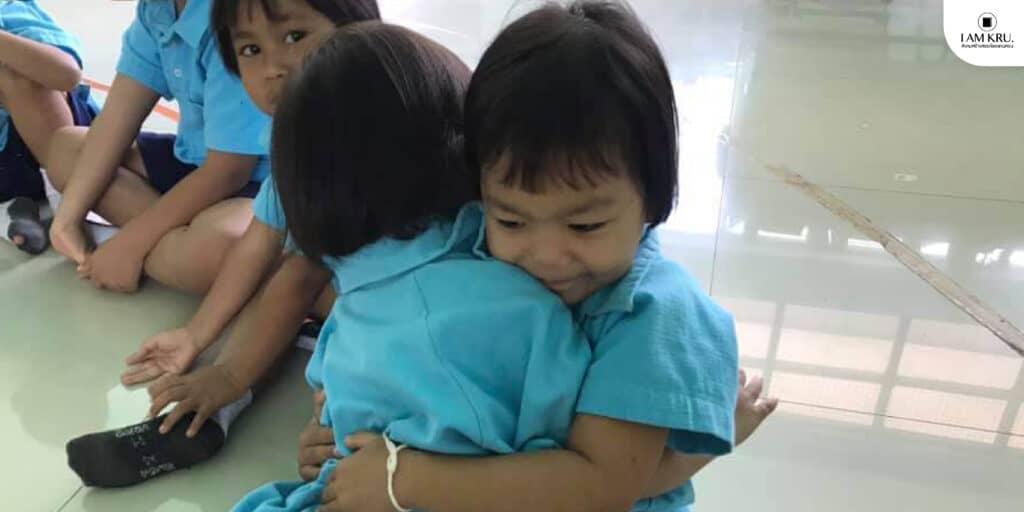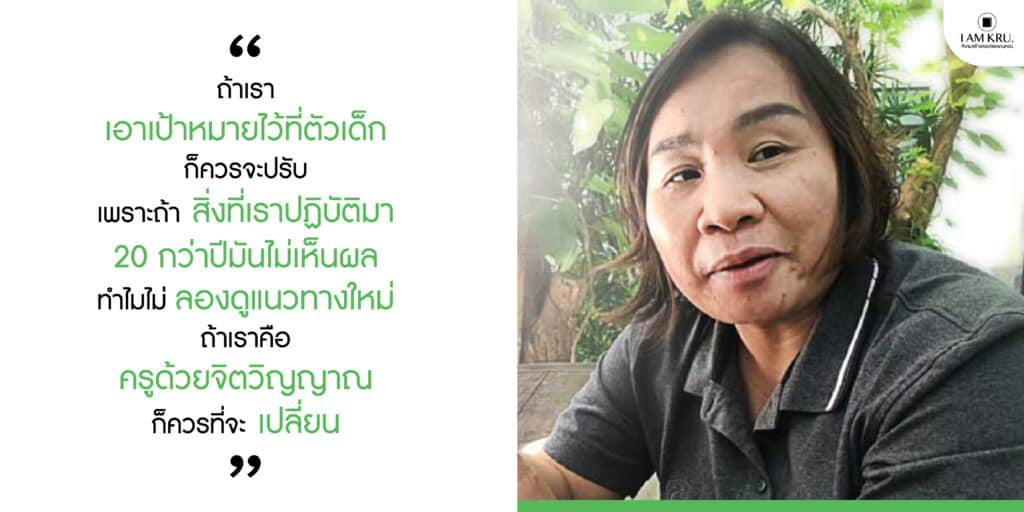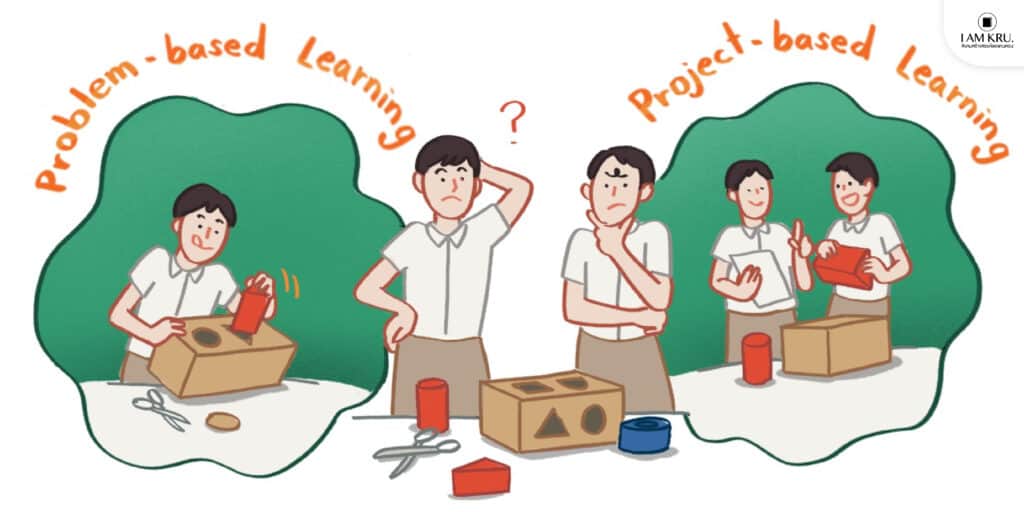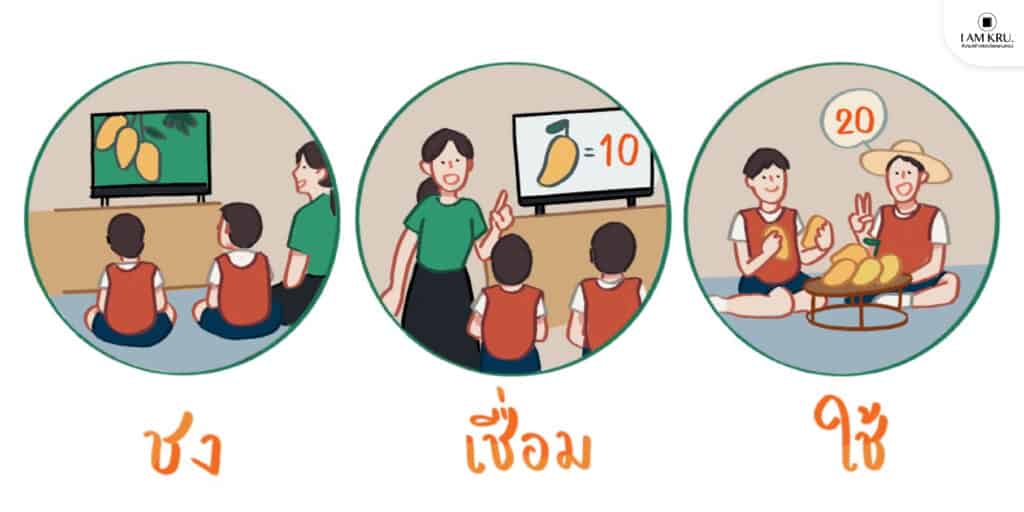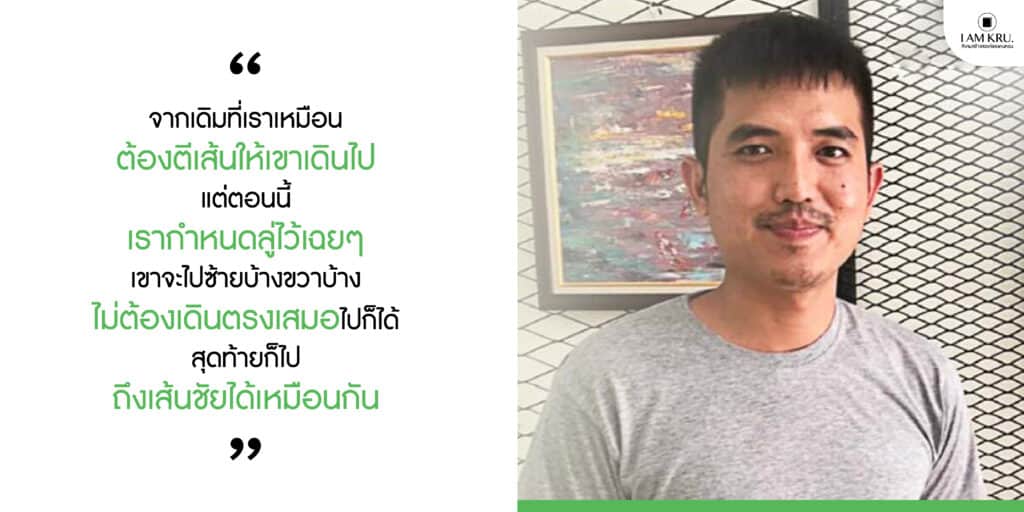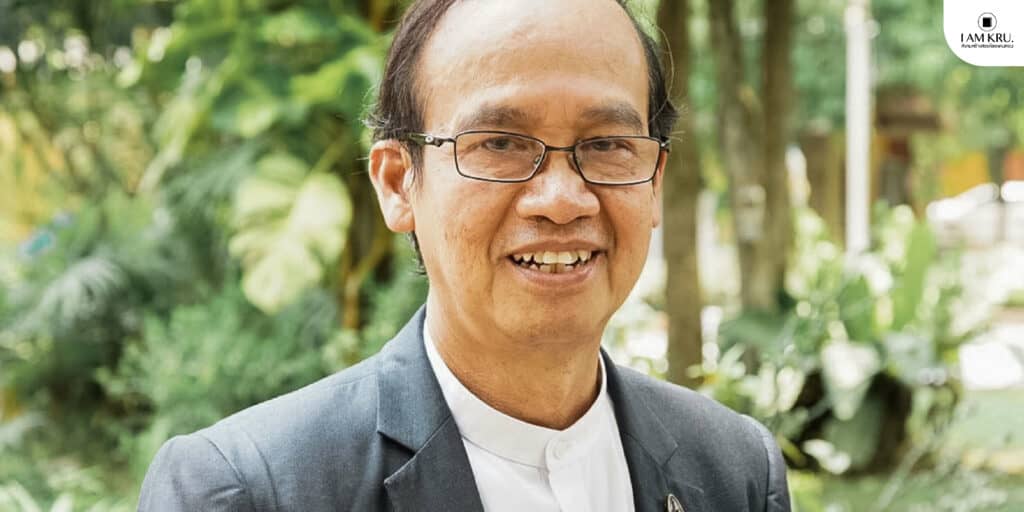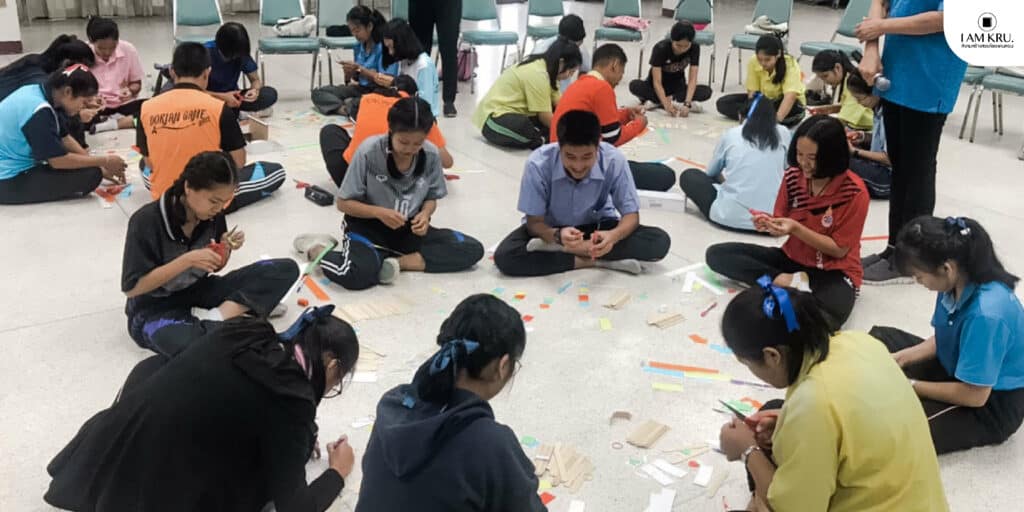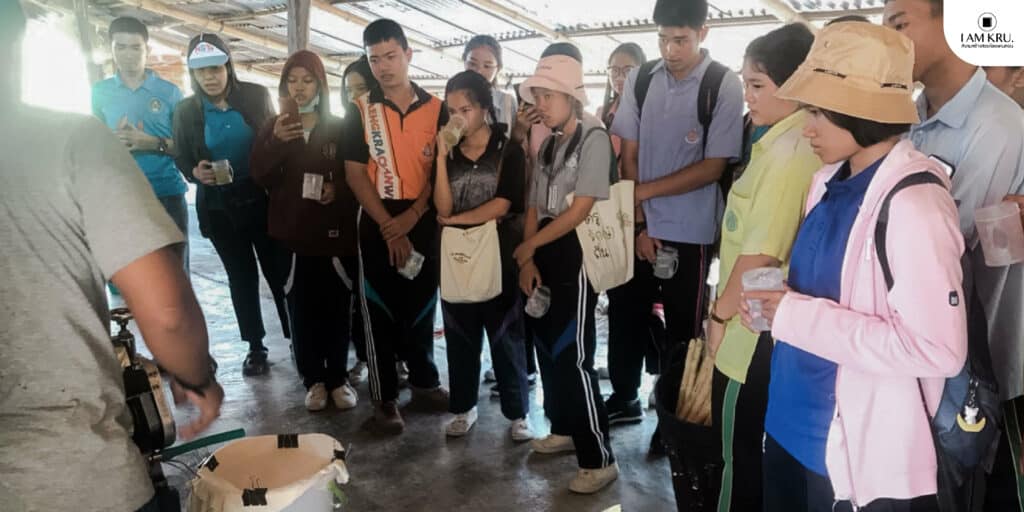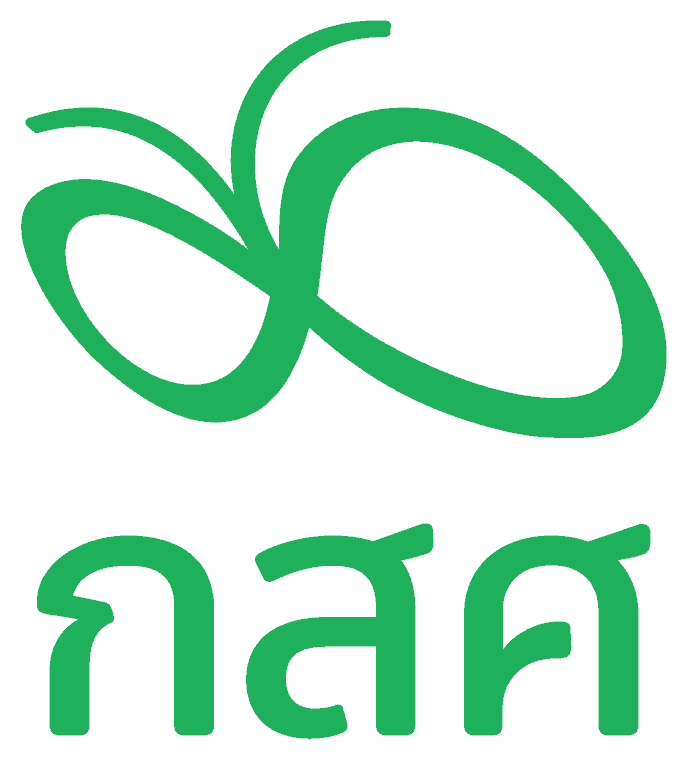The dimension of educational development through area development in Thai schools
“Teaching is not just about academics but also an intellectual cultivation. The outside world is not solely about academics. Students should gain other skills from going to school aside from knowledge.”
Dr. Krissanapong Kiratikara said.
What do you think the educational costs of one student are?
Present-day education causes students and their families to pay other non-monetary prices such as time and living conditions. School curriculum deprives children of spending time with their families. Many students have to spare hours just to go to school because their families want them to access quality resources that are only available at schools far away from home. Some parents can drive their children to school, some cannot. Some students have to go to school on their own which further adds up to the expenses. Thus, the ‘free education’ isn’t free after all.
And what could we do to avoid high educational costs?
The Equitable Education Fund (EEF) has founded the Kru Rak Thin program with the purpose to solve educational problems that go against students’ lifestyles by pushing the system to produce teachers that are part of the community. This is the reason behind EEF’s scholarship for high school students to study in local universities and come back to teach at local schools.
In a previous year, EEF held a discourse under the topic “Why do we need to give the opportunity to poor students to study teaching to develop local areas” in the 2nd workshop of Kru Rak Thin training and preparation institution. An honored guest speaker Dr. Krissanapong Kiratikara, Advisor of the Equitable Education Fund (EEF) has given the concept of educational inequality from many perspectives which could be summarized into the following points:
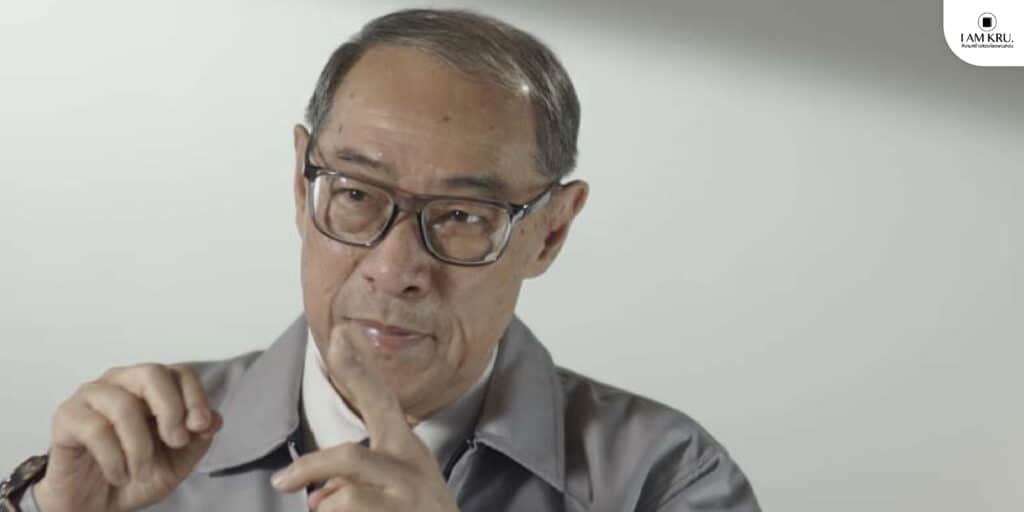
The heart of educational development is a teacher’s spirit.
Dr. Krissanapong saw the importance of students’ living conditions and thought that a good teaching method can fulfill this part.
“Teaching is not just about academics but also an intellectual cultivation. The outside world is not solely about academics. Students should gain other skills from going to school aside from knowledge. For instance, primary students spend more time with their parents than with the teacher. How could we associate the parents with education?”
In the present–day teacher training, most courses mainly emphasize being ‘an educational technologist’, using various techniques to make teaching approachable. Teachers get an instant set of knowledge to teach students but one thing left unfulfilled is a teacher’s spirit. Not many people possess this spirit. Hence, teachers’ college which focuses on molding teacher personality needs to be split from the Faculty of Education that aims to produce educational technologists, and this is an issue that should be further discussed in the future.
Problems of the context of the area in Thai Education
“Education is too important to be left solely to an educator. Education is part of human resource development. It’s impossible a 3 to 4 years’ worth of knowledge would be beneficial for the next 70 years. Therefore, education in a vague term is human development. There must be other dimensions of a cradle to grave knowledge transferring. Educational goals also need to be taken into account. University professors should be able to anticipate the educational goal in human development in the next 10 years and link them to the context of Thai society. Teachers have to understand the context of the area they’re going to be working at.”
The main educational problem is a lack of understanding in the context of the area. Although some teachers are willing to teach in rural areas they are not familiar with, they turn over after 3–4 years due to the supervision problem Teachers are not able to work efficiently in the rural areas and what follows is the lack of teachers in rural schools which adds up to the expense of students in order to seek decent education.
Dr. Krissanapong addressed these problems that despite free basic education, it’s not totally free of charge because students have to pay other additional costs such as traveling costs. Some students go to school on foot, some ride a bike, some take a bus, and some ride a motorcycle. Those values are added up to the expense of students. Ergo, going to get a free basic education at school is not free after all. This is called ‘educational costs’ which is a problem for some groups of students. The EEF is going to fix this problem to help children, especially 1.6 million underprivileged children, get equitable access to education.
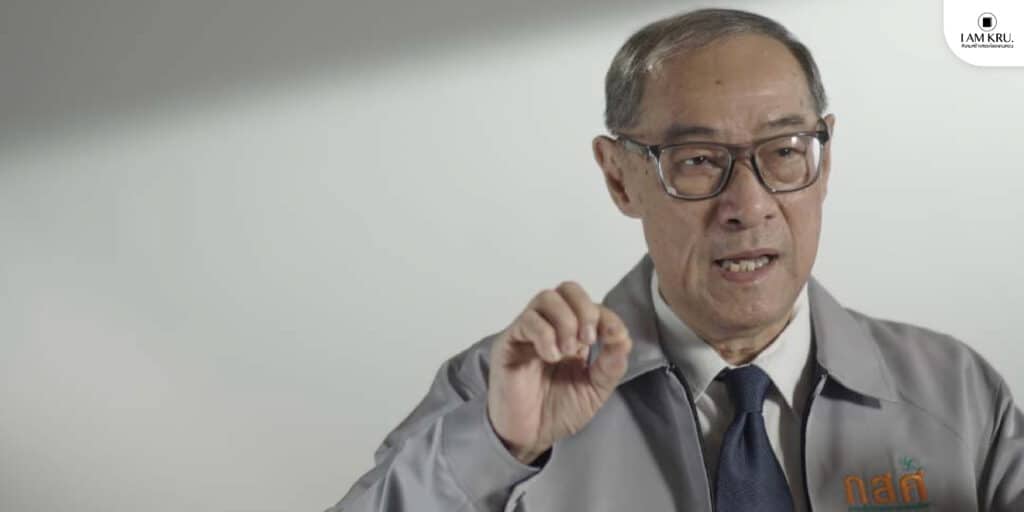
Increasing quality in education, increasing learning achievement
An important thing educational personnel needs to fix is the development of learning achievement of students from every status because equitable and thorough access to education does not guarantee success. Even though everyone gets access to education, it doesn’t mean everyone would do well in school and apply what they have learned in real life.
In the development of the instructional system to increase learning achievement, the factor that should be adjusted is the learning environment for students. Resources such as teachers, books, and learning technology should be distributed to meet the demand of each local school and enough for the all students. This would help to prevent the inequality gap between small schools and big schools as shown nowadays. The central administration has to financially support the budget to achieve this goal.
To manage an adequate amount of teachers during the shortage, Dr. Krissasapong suggested merging small schools and managing them as a cluster, similar to what the Local Administrative Organization is doing; students will go to one school on Monday, Wednesday, and Friday, and another school on Tuesday and Thursday. Students will get to study in every class with the support from joint resources from each school which could solve the problem without spending money, just using systemic management.
Another way of managing resrouces is employing the non-formal and informal education system. Dr. Krissanapong addressed that we could use this to support basic education by starting with amending the law to allow the non-formal and informal education institutes and personnel to teach students in the normal system, including non-formal and informal education teachers and every alternative educational institute. All facilitators belong to the Ministry of Education, not just to one particular school, the Office of the Basic Education Commission, or some vocational schools. Adjusting the human resource management doesn’t require much budget but this important change does require a certain amount of courage.
Changing the direction of Thai education by changing the social value
The main obstacle for merging normal education with alternative education is the old value of the older generation who tend to think that taking academic courses is the best choice. Therefore, adjusting the family’s concept of education is also an important matter.
“The social value is that people would rather choose to study academic courses and not vocational courses. We need to reconsider this concept because vocational education is still an education. The form of education should match with the readiness and future career of each student. We have to condemn the parents, not the children. Children are vulnerable, we need to associate education with their families also. ”
Associating education with the families is pointing out the importance of many types of education, not just academic courses, to the parents. When families get to know and understand various educational paths, they would be able to support their children to choose the one that matches with them. This tends to give a better result than forcing children to choose academic courses without understanding of the courses and their own abilities.
The digital world and the future of education
Another problem that Dr. Krissanapong is emphasizing is inequality in present-day society. The global pandemic has further widened the wealth gap, the economic recession affected a high rate of poverty. The widespread poverty pushes many children out of the education system and deprives an opportunity to sharpen their intellect, skills, and behaviors. The problem of poverty is that children cannot fully access technology. Schools turned to online teaching due to the COVID-19 situation, teachers teach through online platforms and students learn through online materials. However, a considerable amount of Thai people doesn’t have access to the internet. Online teaching cannot be conducted in certain areas where internet connection is inefficient and unstable. This issue has to rely on local development, making the internet available to everyone and providing enough electronic devices for students.
Furthermore, not every instructional media and resource is reliable. Exercising discretion on the internet browsing is needed to be taught also. Students should be aware of the morality and ethics of using digital platforms because an enormous technological society is comparable to another world for us. Therefore, a code of conduct for peaceful coexistence is key. Family, teacher, and everyone involved should realize this matter and develop a guideline to educate the children.
“In the future, we’re going to live in a digital environment where humans will become more distant from one another, less empathy, and more selfish. We have seen the abomination of humanity’s dark side through hateful words floating around on social media. People could show their darker sides when they’re anonymous, they can say anything they want. Therefore, another important thing besides knowing how to use the internet is how to see through it. Schools have to educate children on morality ethics in the digital world and encourage them to face it. Whether it’s an old problem or a new one, they’re both challenging. We need to figure out how to bring education to the children.” Advisor of the EEF said.
For other additional problems in different dimensions, the EEF is proceeding to solve this problem through multiple programs in collaboration with the school network nationwide, not just the Kru Rak Thin program. The aims to fix inequality need help from the local administration because a good education starts at home. When local people understand the purposes of the program, they will cooperate. The program would be able to develop the ability of students and the quality of the school at the same time.
745
Writer

- เอื้อการย์ โรจนจิรไพศาล (มะแม้ว)
- นักเขียนผู้หลงรักการผจญภัยในเมือง ปรัชญาในชีวิตจริง และการไป Cafe Hopping ทั่วทุกมุมเมือง
